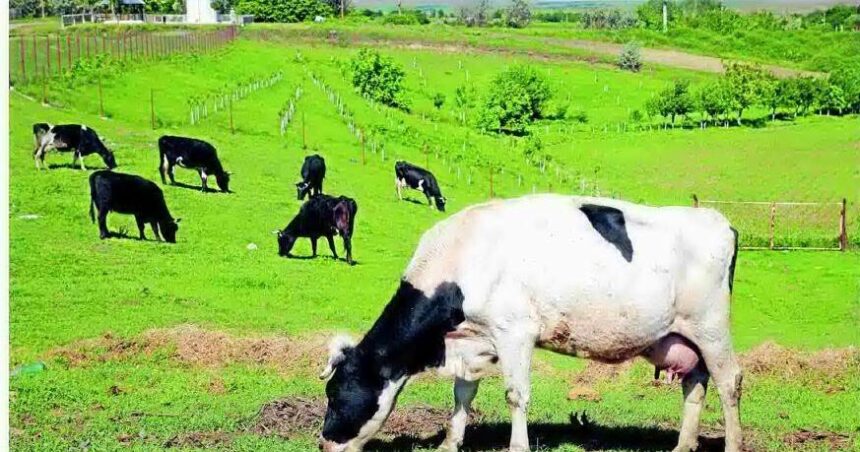Denmark is set to implement a groundbreaking approach to tackle greenhouse gas emissions by taxing livestock farmers for the methane produced by their cows, sheep, and pigs starting from 2030. This move makes Denmark the first country to take such action specifically targeting methane emissions, a potent gas contributing to global warming.
The Danish Taxation Minister, Jeppe Bruus, aims to reduce the country’s greenhouse gas emissions by 70% from 1990 levels by 2030 through this taxation on livestock farmers. The tax will start at 300 kroner ($43) per ton of carbon dioxide equivalent in 2030 and will increase to 750 kroner ($108) by 2035. With an income tax deduction of 60%, the actual cost per ton will range from 120 kroner to 300 kroner by 2035.
While carbon dioxide is commonly highlighted for its role in climate change, methane is much more potent in trapping heat, about 87 times more effective on a 20-year timescale, according to the U.S. National Oceanic and Atmospheric Administration.
People are also reading…
Methane levels have been on the rise, particularly since 2020, with livestock accounting for around 32% of human-caused methane emissions, as per the U.N. Environment Program. This tax initiative in Denmark is a significant step towards achieving climate neutrality by 2045.
Another similar law was passed in New Zealand for 2025, but it was recently repealed due to farmer criticism. Denmark’s agreement was reached collaboratively with various stakeholders, including farmers, industry representatives, and unions, signaling a proactive approach towards addressing climate change.
The Danish Society for Nature Conservation welcomed the tax agreement, labeling it as “a historic compromise” and reinforcing Denmark’s commitment to environmental sustainability.





